If you're new here, you may want to subscribe to my RSS feed. Thanks for visiting!
by Rick Marshall
Even though we had an awesome garden last year, we still shopped our local farmer’s market to supplement our food supply. No matter how terrific your garden is, sometimes, you need a bit more food to feed the family. And, it doesn’t hurt to have a bit more variety as well.
More Minibeds added, more variety grown
Converting our garden to Herrick Kimball’s Minibeds on Plastic gardening system helped us create the most productive growing space possible. (Read more here about our garden makeover.) We used the additional time at home during quarantine to enlarge our garden with more Minibeds. At the same time, expanding the varieties of what we were growing to provide us with more choice. Everything we planted grew very well. By July, we had a garden in full production. Upgrading our garden helped us become more self-reliant and increased food security for us during and after the pandemic.
The Minibeds on Plastic system didn’t provide us with an overwhelming amount of food. But it did significantly expand the variety of vegetables growing in the garden. Our garden changed quite a bit and grew very quickly.
Our first harvest was small, but we were excited!
By June, we started harvesting our produce. It wasn’t much but included Better Boy Tomatoes, Cherry Tomatoes, Jalapeno Peppers, Sweet Peppers, Tomatillos, and a Zucchini.
We had several weekly harvests throughout the growing season.
Grow what you can, and supplement the rest
Our garden produced well every week and we ate most of what we grew. Nothing went to waste.
Many of us experienced the fragility of the supply chain and food supply during the pandemic. It seemed the supply issues radically affected both home cleaning supplies and the supply of meat. The continuing problems the food supply faced during Covid caused concern there would be severe food shortages in the late fall and throughout the winter. We realized we couldn’t rely on grocery stores as food shortages and rationing began to hit our area. So we started canning and dehydrating anything that we produced above what we were eating.
Beginning in the fall, every time we harvested the garden, we canned some of the produce. We were getting lots of fruit and vegetables from our garden throughout the summer months, and it was plenty for us. But we needed something more to supplement our food supply to get us through the lean late fall and winter months. Illinois winters can be long and cold, and in the spring, it might not be until June when the garden starts producing again.
So, we looked for a way to supplement our garden produce supply.
Best Farmer’s Market ever!
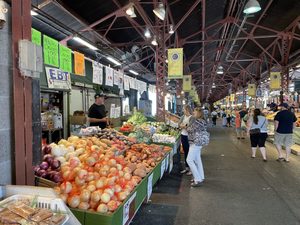
We live on the edge of the suburbs, about 20 miles from St Louis. St Louis has a wonderful farmer’s market, the best we have ever found. If you haven’t visited it and get the opportunity, please do. It is called the Soulard Farmer’s Market. Located just south of downtown St Louis, the farmer’s market has all the fruit, vegetables, bread, and meat you could ever need.
Most (but not all) of the fruits and vegetables at the farmer’s market are locally grown. We developed a relationship with one of the local vendors and would buy large amounts of fruit and vegetables to supplement what we grow in our garden.
Last year our daughter began making organic dog food for her two dogs. She uses an enormous amount of rice, zucchini, carrots, and a few other items. We wanted to ensure we had enough to keep the dogs fed this winter, along with a pantry full of vegetables we could use for soups, pizza sauce, salsa, and snacks. So, on one visit to the Soulard Farmer’s Market, we purchased 200 pounds of tomatoes, 200 pounds of carrots, 200 pounds of zucchini, 200 pounds of jalapenos, and 200 pounds of tomatillos for canning!
Daisy shares a link in this article for 9 vet-approved homemade dog recipes so you can help your pups thrive.
We spent all weekend canning those vegetables.
Develop good relationships with vendors
If you aren’t a farmer and don’t have access to enough land or expertise to grow all the food you need, you can supplement your food by purchasing what you need from the farmer’s market. I highly recommend building good relationships with the vendors.
One vendor at Soulard market gave us an outstanding price on the produce. Lower than we could have bought them for in the supermarket. And he had an unlimited supply! Our relationship developed, and we put an order in with him early in the week. On Saturday, we would stop by the farmer’s market to pick up the order. He was fantastic to work with, and the variety of fruits and vegetables he could provide was incredible.
I’m sure most cities have their version of the Soulard Farmer’s Market. And, produce vendors will be more than willing to sell you as much as you need.
A family that cans together…
We found lots of resources on YouTube for videos on how to can, and it was a fun time. Even if you live in an urban or suburban area, you can still stock up on organic food to prepare for times when you need it.
We had five people in the kitchen slicing, shredding, peeling, boiling the food, and having a great time. We did this together as a family and shared the food among our three families. By sourcing the farmer’s market we also helped produce vendors through a difficult time caused by the pandemic. Food production slowed down and the number of people willing to go to the farmer’s market decreased.
We made two or three trips to the Soulard Market to stock up. The result was full pantries for three families and a great sense of relief. No matter what happened with the supply chain, we still had food security for the winter months. Our pantry lasted us all year.
Oh, in June, we made some wonderful soup from the last of our Butternut Squash we harvested from the garden last fall. The Butternut Squash kept well in our dark, cool basement, and we enjoyed the tasty soup.
Daisy has a couple of articles on canning as well. You can read those here and here. And, check out Daisy’s book, The Prepper’s Canning Guide.
Now we have beautiful relationships, peace of mind and are closer to self-reliance
By eating what we grow and supplementing with produce from the farmer’s market, we provide our family with peace of mind. We have met some wonderful people along the way dedicated to growing organic food and selling it directly from producer to consumer. It is always nice to eliminate the middle man and have as few hands as possible touch our food before we eat it.
We were able to process the food ourselves and had plenty for our three families as we shared our resources. This year we are planning the same thing. The garden is up and running, and we have added a few more Minibeds to the system. And we will continue the relationships we built at the farmer’s market.
Do you have a favorite farmer’s market?
If you are looking for stability in your food supply, it might be worth your time to visit your local farmer’s market. The vendors and farmers need your business as much as you need their produce. Have you visited your local farmer’s market recently? Have you supplemented your food supply with locally grown produce? Tell us and other readers about it in the comments section below.
About the Author
Rick Marshall lives in the Illinois suburbs of St Louis and founded the Mission Endure Website and Podcast.

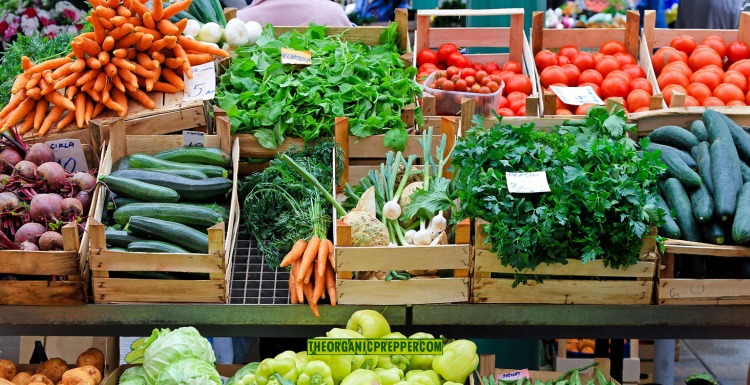
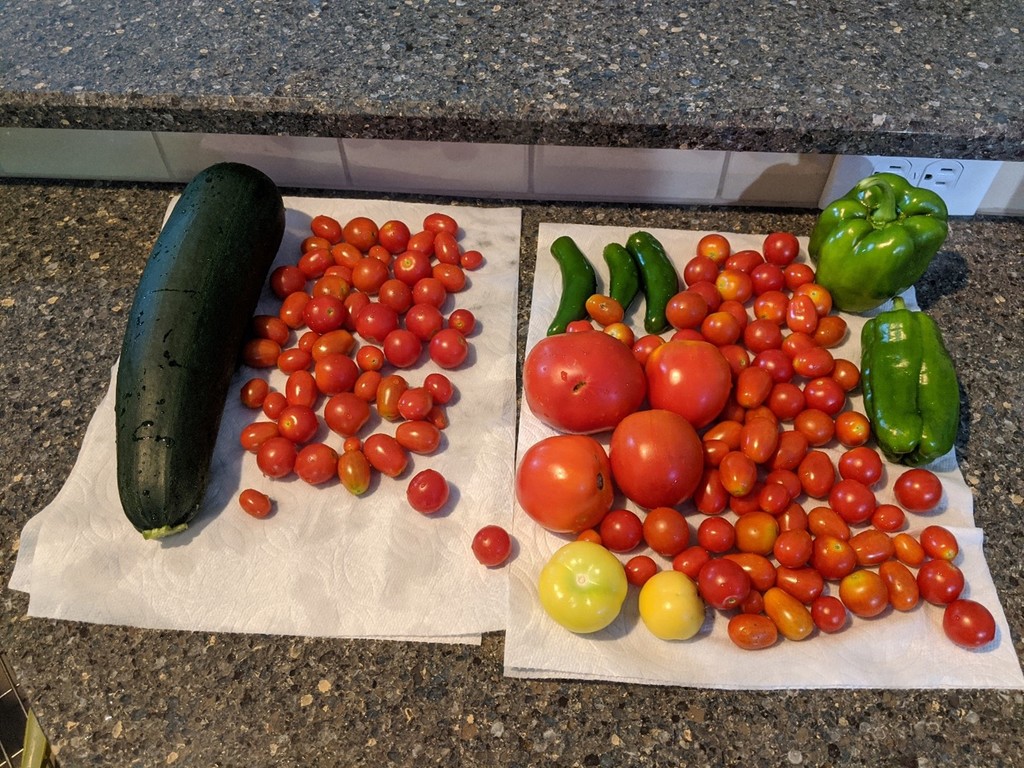
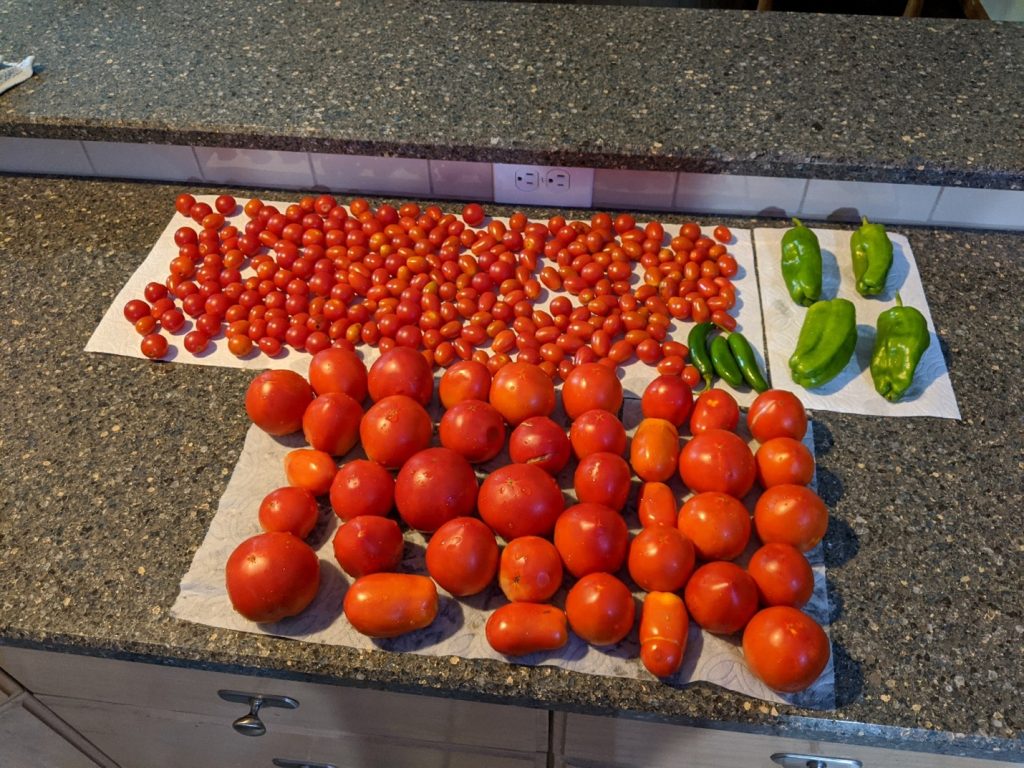
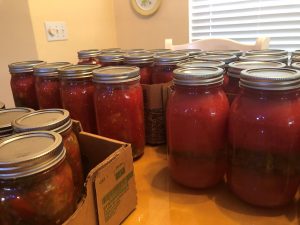
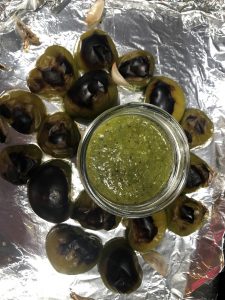
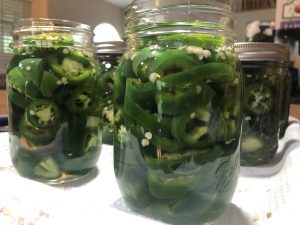
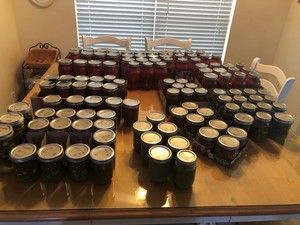
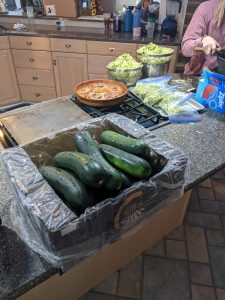
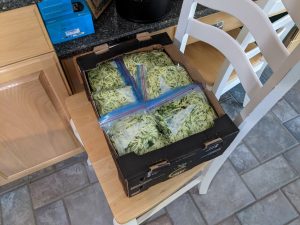
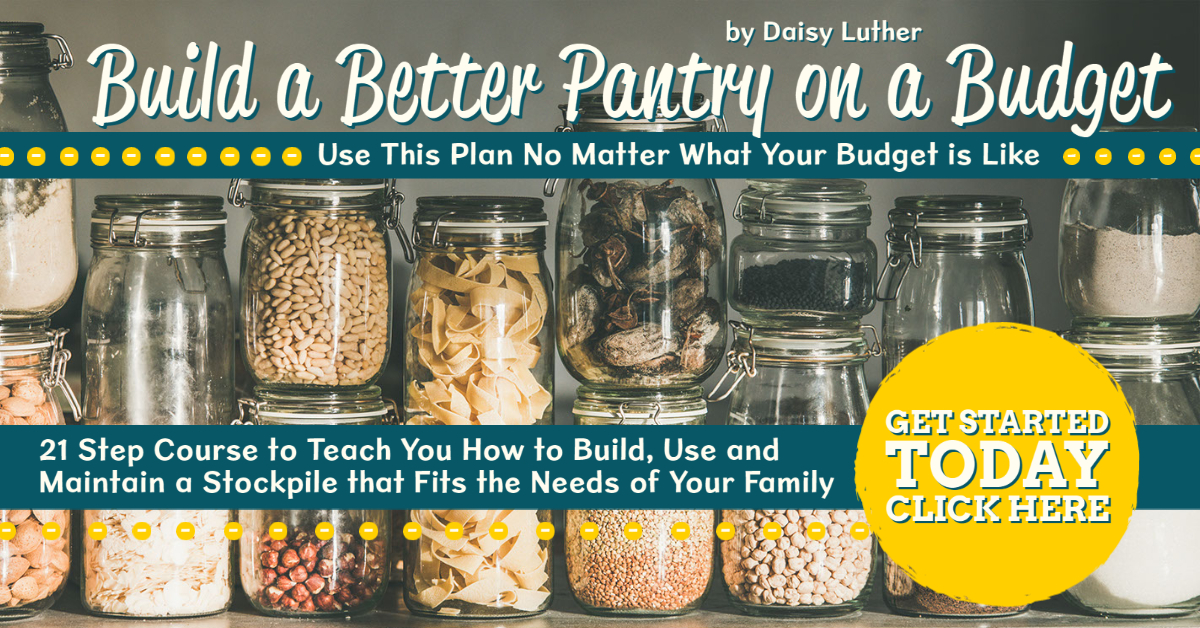














9 Responses
That sound you hear is two hands clapping resoundingly! Good for you! I do the same thing-grow what I can and source the rest from the local farmers, either from the farmer’s market or my CSA. Like you, I preserve what I don’t eat right away and end up with a good supply for the winter. I’m just a bit north of you in Packer country, and winters up here are long & cold too. There’s nothing better than not having to go out for supplies when it’s snowing, blowing, and 30 below! The only things I need to buy are fresh stuff like milk and bread, and some meat, and cat supplies. I should try making my own cat food.
Yay us!
Hi Jayne. Thanks for the wonderful comment. It is sure nice to know if you plan ahead and put some food aside in preparation for the winter that you don’t have to go out and brave the cold or be reliant on the supply chain unless you want to. Your weather is much colder and winter lasts alot longer than here, so it is nice to have the choice to go out in it or not. We typically go to the store and buy a few fresh things like you mention, but I don’t think we went grocery shopping at all for most of the winter. I enjoy winter a lot more when we have plenty of good, home preserved food and I don’t have to go out if I don’t want to.
see you have items in glass jars, not canning jars…..in those do you add the oxygenators too? want to put dried beans, noodles, powdered stuff etc in those types or even canning jars, but dont want to “can” them per se…..so anything else do I need to use oxygenators? how many per jar? love your suggestions, help, ideas, etc. things out there are getting more intense…..thanks again
Way to go on the suburban gardening! That’s so cool how long your squash lasted in your basement. I have a root cellar, and was amazed at how long pumpkins would last in there. I go directly to a farmer close to me to supplement. It’s the same idea, and it’s been a good way to meet other producers. I’m actually taking a road trip to get fruit this weekend. It doesn’t grow well near me so my daughter and I are driving over the mountains this weekend because we want to can as much as possible for this winter.
Heck, we don’t just buy from the Farmers Market, we sell to the Farmers Market!
We used to grow our own food and supplemented from the FM just like you said, but we were always saying, We could do this — why not? So we built an 84’x27′ high tunnel and started selling what we couldn’t eat (which was a LOT). Then, since it was obvious we were serious, we got an NRCS grant, and the gov’t built us a second high tunnel (free) — this one was 76’x 30′
It’s a lot of work, but we’re averaging a gross of about $5000/mo in the summer months and $3,000/mo in the winter months. We’re fortunate to have a year ’round Farmers Market. Recently, via a company called Barn2Door (they specialize in marketing farms), we’ve now got a website that’s boosted our sales and profits. Since our market is strictly local, I’ll put my URL here — not advertising, just showing you what we’re doing. GranvillesGarden.com.
Originally, the whole idea behind the garden was self-sufficiency — when the SHTF, I don’t want to take 3-6 months to ramp up and I sure;y don’t want to make our early mistakes when every plant counts.
Practice, practice, practice.
We grow organically, but in a crisis situation, we tend to get pragmatic, so we’ve stockpiled some pesticides we normally wouldn’t use. We’ve encountered tomato hornworms, cutworms, army worms, cabbage loopers, squash vine borers, whiteflies, aphids, tomato early blight, tomato leaf mold etc. — if you a) haven’t learned how to deal with these kind of challenges, and b) haven’t stockpiled what you need to deal with them then you’re going to be sorely disappointed when you wake up one morning and find that cabbage loopers can wipe out your entire cro[ of brassicas in 3-5 days, etc.
Last fall, we had a groundhog start visiting and in inside a week, he wiped out every single bed of veggies we had growing. This year, we’re ready if he decides to revisit what he obviously thinks is his private garden.
We’ve stockpiled seeds and fertilizer as well. We’ve met with several of our neighbors and made it very clear that I anticipate we’ll end up feeding their families, but they need to wrap their heads around the fact that they’re going to be helping us farm and protect our garden.
Anyway, that’s how we’re doing it.
I totally agree about making mistakes when it’s not quite so costly. Garden and learn! Last year I put my garden into full production due to ‘Rona and got instead a great refresher course on my college plant pathology. If it weren’t for alternative sourcing I’d have had very little put up! Ugh.
Have you looked at ways to make fertilizers for yourself? Some things, such as nitrogen and calcium, are pretty easily sourced right from the garden.
I grow beans, long root vegetables as those loosen soil and bring up needed nutrients or fix nitrogen drawn from the air and rain. I plant eggs shells and compost and banana peels with my seed plantings. My tomatoes need the potassium from banana peels to set fruits.
I don’t trust my ability to build a full range macro and micro nutrients for our plants, but it’s easy for me to buy and store a 5 year supply, which is what we’re doing. Getting everything balanced properly is too important for me to guess.
In past years I shopped farmers markets. The nearest is about 25 miles away. I’m pretty much home bound caring for my husband with alzheimers. So I’m adding fruits and expanding the main garden.
12 fruit trees, 3 more grapes, 60 blackberries of 2 varieties, a strawberry bed, and fruiting bushes. Even more wild type roses for teas and rose hips.
I raise chickens, ducks, and rabbits for meat and eggs. I think I’d like to add small goats for milk and meat.
I have 3 waterbath canners and 2 pressure canners. I aim to keep them busy. Last year we survived on the stored food while I recovered slowly from covid. We’re almost back to that place and aiming for more. yesterday I canned 6 pints of butter and 2 of ghee. Today I’m canning two whole chickens and 6 pints of pork tender loin. In a few days I’ll start drying and canning our wild amaranth and a few pints of red potatoes quarters with pork broth.
I can in mostly pints but half chickens, bone in raw pack, are going in quarts with some chicken bullion powder. I sun dry some vegetables, shade dry herbs, ect.